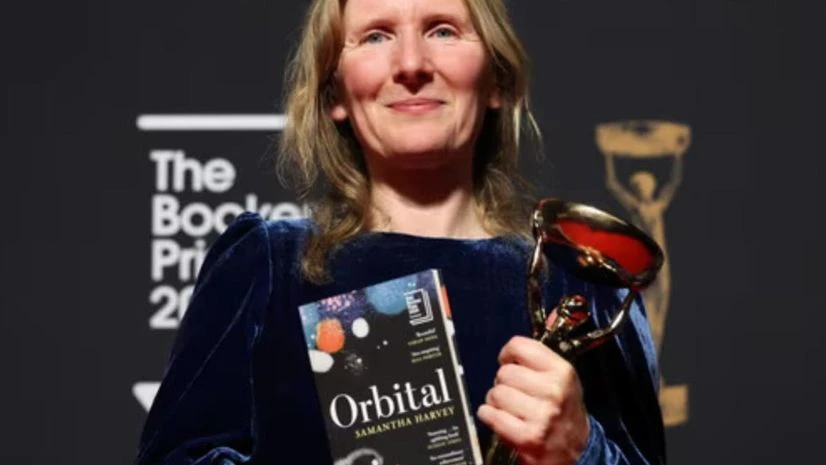British author Samantha Harvey has made history by winning the 2024 Booker Prize for her novel Orbital, the first space-set book to claim the prestigious literary honour.
Orbital explores Earth from a celestial perspective, following six astronauts aboard the International Space Station (ISS) as they navigate a single transformative day. Lauded for its profound storytelling, the novel has resonated with readers, becoming the best-selling title on this year’s shortlist in the United Kingdom. It has also outsold the combined sales of the past three Booker winners prior to Harvey’s victory.
Harvey, the first woman to win the award since 2019, was honoured at a ceremony held in London’s historic Old Billingsgate. Alongside the recognition, she received £50,000 (Rs 5,450,000), which she plans to partially spend on a new bicycle.
In her acceptance speech, she dedicated the award to “all the people who speak for and not against the Earth and work for and not against peace.”
Reflecting on her creative journey, she shared her initial doubts: “Why would anybody want to hear from a woman at her desk in Wiltshire writing about space when people have actually been there? I lost my nerve with it and thought I didn’t have the authority to write it.”
Speaking to BBC News after her win, Harvey said she was “in complete shock and very overwhelmed,” adding that the accolade would be life-changing.
A book about a wounded world
Chair of the judges, Edmund de Waal, hailed Orbital as a “book about a wounded world,” praising its “beauty and ambition” and Harvey’s “language of lyricism.” The novel, described by Harvey as “space pastoral” and a form of “nature writing about the beauty of space,” offers readers a profound meditation on humanity’s place in the cosmos.
More From This Section
The 136-page novel, Harvey’s fifth, unfolds over 24 hours as the astronauts experience 16 sunrises and sunsets, observing Earth’s vast beauty—from glaciers and deserts to mountains and oceans. Its brevity makes it the second-shortest Booker-winning novel, surpassed only by Penelope Fitzgerald’s Offshore (132 pages) in 1979.
Harvey revealed she penned Orbital during successive lockdowns, drawing parallels between the confined lives of her characters and the universal experience of isolation. “I was writing about six people trapped in a tin can. It felt like there was something resonant about that and our experience of lockdown, of not being able to escape each other and also not being able to get to other people,” she told BBC News.
A record-breaking shortlist
This year’s Booker shortlist featured five women among the six finalists, the highest representation of women in the prize’s 55-year history. The other nominees included:
- James by Percival Everett (United States)
- Creation Lake by Rachel Kushner (United States)
- Held by Anne Michaels (Canada)
- The Safekeep by Yael van der Wouden (Netherlands)
- Stone Yard Devotion by Charlotte Wood (Australia)
The Booker Prize, open to works of fiction written in English and published in the United Kingdom or Ireland, has previously recognised iconic authors such as Margaret Atwood, Salman Rushdie, Bernardine Evaristo, and Hilary Mantel.

)
